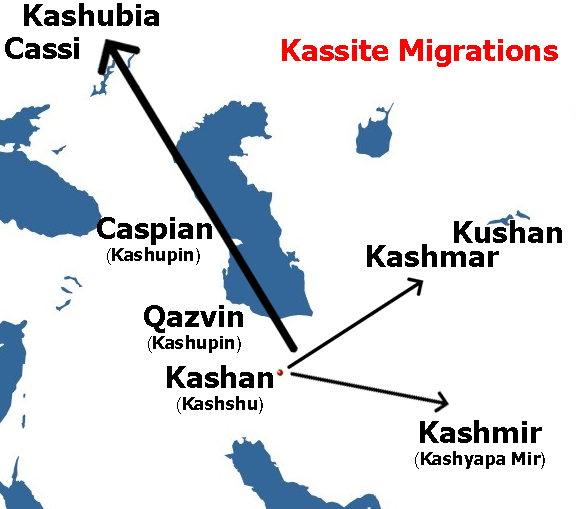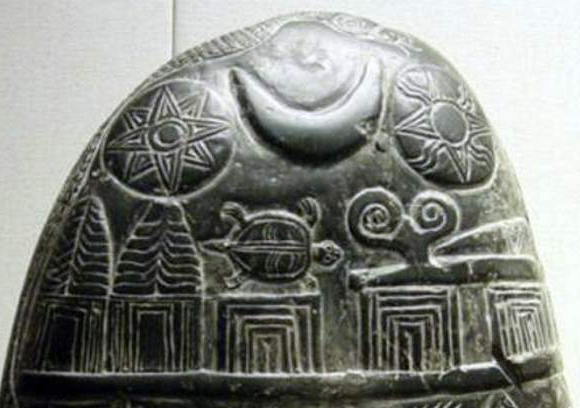Indo-Iranian origin of Kassite (2nd millennium BC)
Printed From: History Community ~ All Empires
Category: Regional History or Period History
Forum Name: Ancient Mesopotamia, Near East and Greater Iran
Forum Discription: Babylon, Egypt, Persia and other civilizations of the Near East from ancient times to 600s AD
URL: http://www.allempires.com/forum/forum_posts.asp?TID=37934
Printed Date: 23-Apr-2024 at 14:28
Software Version: Web Wiz Forums 9.56a - http://www.webwizforums.com
Topic: Indo-Iranian origin of Kassite (2nd millennium BC)
Posted By: Cyrus Shahmiri
Subject: Indo-Iranian origin of Kassite (2nd millennium BC)
Date Posted: 02-Sep-2019 at 09:18
|
There are many evidences which show Kassites were an Indo-Iranian,
or even an early Indo-European, people, first about their name, there
are some different IE people who have similar names:  We read about Indian Kashyapa and Kashmir: https://en.wikipedia.org/wiki/Kashyapa - https://en.wikipedia.org/wiki/Kashyapa
Encyclopedia of Religions, page 420:  Babylonian Kudurru of the late Kassite period found near Baghdad:  There
is a Kassite-Babylonian vocabulary with 48 entries, most of these words
have also Indo-European origin, for example the Kassite word for "king,
head of family/clan" is janzi, it has the same origin of English
word king and Old Church Slavonic kŭnęzĭ from proto-IE
*ǵénh₁os "kin, clan, race", cognate with Sanskrit janús.
------------- 
|
Replies:
Posted By: Sharrukin
Date Posted: 05-Sep-2019 at 00:32
|
While it may be true that some place-names in Iran reflect the presence of the Kassites, the ethno-linguistic origins of the Kassites isn't clear at all. There may be some agreement that they may have had contact with Indo-European groups, which may be reflected in some proper names, but the majority of the evidence of language seems to point to a Hurrian or Hurrian-parallel background. The following are a sampling of Kassite words or word-elements which have their equivalents in Hurrian words: KASSITE HURRIAN MEANING ab- abi first ag- ag- to lead al-, alb- al- 1. to bring near to 2. to speak amm- amm- to reach, come close to ar- ar- to give asht- asti woman at- attai father ba- pa-, ba- to build badar pedari- bull bur- buru strong buri-, ubri- evri, erbi lord dan- tan- to do dup- tuppi strong durug- turuhi male, man en- an- to rejoice etc............ Yeah, no two scholars agree on their origins: one thinks Hurrian, another thinks, Elamite, while a third thinks IE.
|